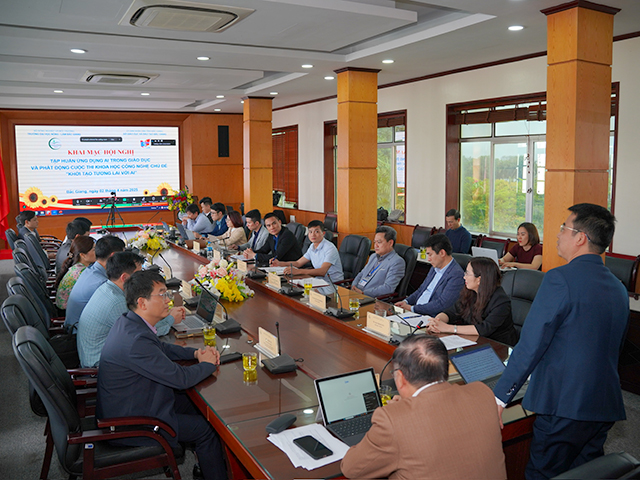(MARD)- The World Economic Forum is committed to cooperation with Vietnam in building an Innovation Center for global food security and environmental sustainability.

On the Prime Minister Pham Minh Chinh’s business trip to the United States from May 11 to May 17, 2022, Minister of Agriculture and Rural Development Le Minh Hoan had a working session with the World Economic Forum (WEF) to promote the implementation of public-private partnership initiatives for global food security and environmental sustainability.
In the morning of May 16 (New York time), Minister Le Minh Hoan met and worked with Ms. Tania Strauss, WEF’s Director on global strategic initiatives for the food system. The Minister highlighted Vietnam’s agricultural contribution to food security in the country, the region and the world at the meeting. The role of the agricultural sector becomes remarkably important in the context of the global Covid-19 pandemic.
At the United Nations Summit on Food and Food Systems in September 2021, President Nguyen Xuan Phuc affirmed that Vietnam wants to become a transparent, responsible and sustainable food supplier. This is the foundation for Vietnam to cooperate with WEF in building a Food Innovation Headquarter (FIH) in Southeast Asia, and expand international cooperation in research, forecasting, and sustainable management of natural resources. Additionally, Vietnam is also committed to participating in the WEF initiative on the Program of establishing 100 million creative and eco-friendly farming households.
The Ministry of Agriculture and Rural Development has put these two initiatives into specific tasks within the Strategy for Sustainable Agriculture and Rural Development towards 2030 with a vision to 2050, and the draft National Strategyon green growth and transitioning to a green food system, reducing greenhouse gas emissions.
The Minister praised WEF’s close cooperation with the Ministry of Agriculture and Rural Development over the past 10 years, which has contributed to promoting cooperation in the form of Public Private Partnership (PPP) in the agricultural sector in Vietnam. Vietnam considers investments in the form of PPP as an important tool to attract further investment into the sector, as well as develop production along the agricultural value chain to increase investment in deep processing, high value, compliance with quality and sustainability standards by global consumers.
The Minister suggested that WEF work closely with the Ministry to implement the two aforementioned important initiatives, creating a green, low-emission agricultural ecosystem, contributing to the global sustainable development goals.
Since Vietnamese agriculture is still based on small-scale production, WEF plays an important role, acting as a focal point to attract experts, knowledge, resources, and investment connections from large corporations around the world with local businesses and farmer groups, to transform Vietnamese agriculture in the direction of new priorities, effectively implementing its international commitments, and actively contributing to food security and global environmental sustainability.
Ms. Tanis Strauss commended Vietnam’s active participation over the past 10 years. Public-private partnership models for sustainable agricultural development implemented by WEF and MARD in Vietnam have become valuable experiences for other countries.
Ms. Tanis Strauss recalled Vietnam’s pioneering in implementing the New Agriculture Vision in 2010 through WEF activities immediately after the 2008 food crisis. This cooperation has yielded positive effects, promoting the positive contribution of Vietnamese agriculture to food security, poverty reduction, productivity growth and global environmental sustainability over the past 10 years.
She has high hopes that Vietnam’s agricultural sector will pinoeer in the new period and create a breakthrough in sustainable and inclusive development, especially in the context of world economic instability, supply chain disruptions, pandemics, conflicts between countries as well as new commitments on global environmental sustainability.
Public-private partnership is an important model to encourage Vietnamese agriculture to innovate technology and governance system towards inclusiveness and sustainability. WEF is always willing to accompany and commit to the highest level of support to Vietnam in implementing the Initiative to Build a Food Innovation Headquarter in Southeast Asia and the Program of establishing 100 million creative, eco-friendly farming households.
The two parties affirmed that they will direct their specialized departments to quickly design the content and detailed plans in implementing these two initiatives in Vietnam. WEF will make Initiatives implemented in Vietnam a priority in the WEF Davos Forum at the end of May 2022 in Switzerland.
Minister Le Minh Hoan is pleased to invite Ms. Tania Strauss and the WEF Leadership Team to visit Vietnam and attend the Launching Ceremony for the 2 Initiatives in Vietnam at the end of 2022.
Vietnam has been a pioneering country participating in the implementation of the New Agricultural Vision Initiative with the World Economic Forum since 2010. The Minister of Agriculture and Rural Development is an official member of the Senior Board of Directors (Steward Board) in WEF’s Agricultural field, actively contributed to the discussion and formulation of WEF’s Common Agricultural Development strategies.
Partnership for Sustainable Agriculture in Vietnam (PSAV) has been in operation since 2010 under the New Agricultural Vision Initiative of the World Economic Forum. PSAV is co-chaired by the Minister of Agriculture and Rural Development, representing the public sector, and by Nestlé Vietnam, representing the private sector. PSAV’s goal is to become an important organization bridging Public organizations (government, scientific institutions, public training…) and organizations, individuals, businesses under the public-private partnership mechanism in order to contribute to the development of institutions and policies, attract resources, and cooperate to materialize the development goals of Vietnam’s agriculture and rural areas in the context of Vietnam’s new requirements.
The Ministry of Agriculture and Rural Development currently is deploying 8 PPP Working Groups in various sectors, including: coffee, tea, vegetables, fruits, seafood, rice, pepper, livestock, and agrochemicals, with the participation of over 120 organizations, including Government agencies, companies, industry associations, research institutes, international and non-governmental organizations.
Source: MARD








